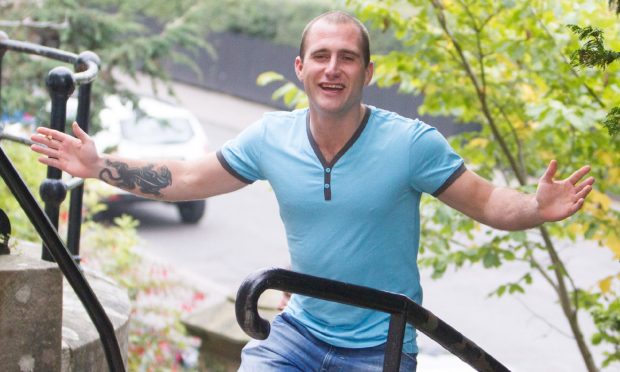A Dundee-based firm has announced the first ever clinical trials for a drug molecule developed using artificial intelligence (AI).
The new compound, which has been designed to treat patients with obsessive-compulsive disorder, is seen as a “key milestone” for machine learning in medicine.
Drug discovery company Exscientia, which spun out of research at Dundee University, partnered with Japanese pharmaceutical firm Sumitomo Dainippon Pharma to enter the clinical trials within 12 months — years earlier than the norm for typical research techniques.
The firms used AI technology to decide the best chemical structure for the new compound, which is called DSP-1181, by sifting through tens of millions of options to select the ones to test further.
It meant researchers were able to narrow the field to just 350 compounds, a fifth of the normal number of candidates.
Andrew Hopkins, chief executive of Exscientia, said: “We believe that this entry of DSP-1181, created using AI, into clinical studies is a key milestone in drug discovery.
“This project’s rapid success was through strong alignment of the integrated knowledge and experiences in chemistry and pharmacology on monoamine GPCR drug discovery at Sumitomo Dainippon Pharma with our AI technologies.
“We are proud that our AI drug discovery platform Centaur Chemist has contributed to generate DSP-1181 and look forward to its progression as a treatment for obsessive-compulsive disorder.”
Machine learning is expected to play a major role in the development of new drugs in the future, and billions of pounds have been poured into the industry in recent years.
The latest announcement is welcome news for Exscientia after it racked up a multi-million pound loss last year as it invested heavily in research and development.
The firm, which ha its roots in research led by Mr Hopkins in Dundee, uses artificial intelligence and machine learning to identify compounds. It has signed several major partnerships with pharmaceutical companies worldwide.
Sumitomo Dainippon Pharma is a leading expert in drug discovery targeting G protein-coupled receptors (GPCR), a key strain which accounts for around a third of all medicines sold in the United States.
Toru Kimura, senior executive officer and senior executive research director of Sumitomo Dainippon Pharma, said: “We are very excited with the results of the joint research that resulted in the development of candidate compounds in a very short time.
“Exscientia’s sophisticated AI drug discovery technologies, combined with our company’s deep experience in monoamine GPCR drug discovery, allowed us to work synergistically, delivering a highly successful outcome.
“We will continue to work hard to make this clinical study a success so that it may deliver new benefits to patients as soon as possible.”










